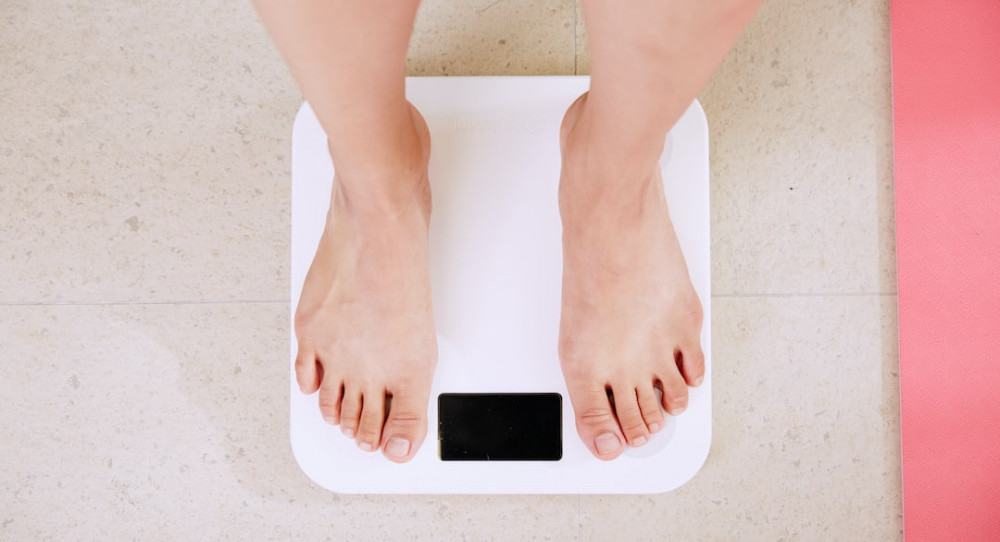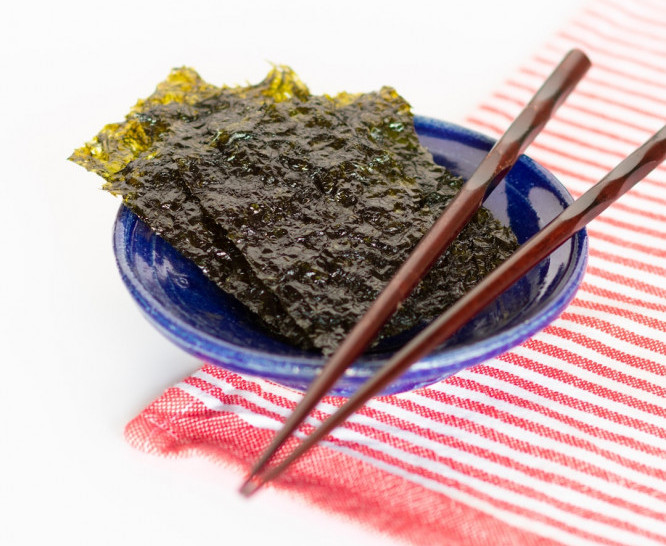Iodine: The Essential Mineral You Might Be Missing
Iodine is a very important mineral that your body needs to stay healthy and strong. It helps your thyroid gland make hormones that control how fast or slow your body works. Your thyroid gland affects many things in your body, such as your weight, your energy, your growth, and your development.
But what if you don’t get enough iodine in your diet? What happens then? Well, that’s not good for your body or your mind. Iodine deficiency can cause many problems, such as swelling in your neck, weight gain, dry skin, hair loss, constipation, feeling cold, feeling sad, and having trouble remembering things. Iodine deficiency can also make you sick more often and increase your risk of getting some types of cancer.
That sounds scary, right? But don’t worry, there are ways to prevent or treat iodine deficiency with iodine-rich foods or supplements. You can also enjoy some surprising benefits of iodine for your body and mind, such as fighting off germs and diseases, making your skin look better, and making your brain work better.
So, are you ready to learn more about iodine and how it can improve your health, happiness, and potential in life? Let’s get started!
Este artículo también está disponible en Español
The Shocking Truth About Iodine Deficiency Around the World
You may think that iodine deficiency is a rare problem that only affects a few people in some parts of the world. But that’s far from the truth. Iodine deficiency is a very common problem that affects billions of people worldwide. And it can have devastating consequences for your health, happiness, and potential in life.
According to the World Health Organization (WHO), iodine deficiency affects about 2.2 billion people worldwide, which is about 29% of the global population. That’s almost one in three people who are not getting enough iodine in their diet. And that’s not all. Iodine deficiency is also the leading preventable cause of intellectual and developmental disabilities, affecting more than 266 million school-age children. That’s more than the entire population of Indonesia or Brazil.
Iodine deficiency is a global health crisis that affects millions of people every year. It can hurt your health, happiness, and future. But why is iodine deficiency so common? Well, iodine deficiency is mainly caused by a lack of iodine in your diet. Iodine comes from the food you eat, the salt you use, or even from the air you breathe.
Some foods that have a lot of iodine are seaweed, fish, dairy products, eggs, prunes, and beans. You can also find iodine in table salt or some breads and cereals with iodine added. Iodine can be also found in the air in locations near the sea. The seawater contains iodine that can evaporate into the air and form aerosols, which are tiny particles that can be inhaled by humans.
How to Recognize the Symptoms of Iodine Deficiency

Do you know how to tell if you have iodine deficiency? Iodine deficiency can cause many symptoms that affect your body and your mind. Some of these symptoms are easy to notice, while others are more subtle and hard to detect. Here are some of the common symptoms of iodine deficiency that you should watch out for:
Swelling in your neck (goiter): This is one of the most obvious signs of iodine deficiency. When you don’t get enough iodine, your thyroid gland tries to make more hormones by growing bigger and bigger. This causes a lump or a bulge in your neck that can be seen or felt. A goiter can make it hard for you to breathe, swallow, or speak. It can also look unattractive and make you feel self-conscious.
Weight gain: Another sign of iodine deficiency is gaining weight without changing your diet or exercise habits. When you don’t get enough iodine, your thyroid hormones become low and your metabolism slows down. Your metabolism is the rate at which your body burns calories and energy. When your metabolism is slow, you burn fewer calories and store more fat. This can make you gain weight and feel tired and sluggish.
Dry skin: Iodine deficiency can also affect your skin health and appearance. When you don’t get enough iodine, your skin becomes dry, flaky, and rough. Your skin also loses its elasticity and firmness, which can lead to wrinkles and sagging. Dry skin can also cause itching, cracking, and infections.
Hair loss: Iodine deficiency can also cause your hair to fall out or become thin and brittle. When you don’t get enough iodine, your hair follicles become weak and damaged. Your hair also loses its shine and color, which can make it look dull and lifeless.
Constipation: Iodine deficiency can also affect your digestive system and cause constipation. Constipation is when you have difficulty passing stools or have fewer than three bowel movements per week. Constipation can cause bloating, pain, discomfort, and hemorrhoids. Constipation can also prevent your body from getting rid of toxins and waste products, which can harm your health.
Cold intolerance:
Iodine deficiency can also make you feel cold all the time, even when the temperature is normal or warm. When you don’t get enough iodine, your body cannot produce enough heat to keep you warm. You may also have low blood pressure, low heart rate, and poor circulation, which can make you feel colder.
Depression: Iodine deficiency can also affect your mental health and mood. When you don’t get enough iodine, your brain cannot produce enough neurotransmitters, such as serotonin and dopamine. These are chemicals that help you feel happy, calm, and motivated. When these chemicals are low, you may feel sad, anxious, irritable, or hopeless. You may also lose interest in things that you used to enjoy or have trouble sleeping.
Memory loss: Iodine deficiency can also affect your cognitive function and memory. When you don’t get enough iodine, your brain cannot function properly and efficiently. You may have trouble remembering things, learning new things, concentrating, or solving problems. You may also experience brain fog, confusion, or dementia.
These are some of the symptoms of iodine deficiency that you should be aware of. If you have any of these symptoms, you should see your doctor as soon as possible to check your iodine levels and get proper treatment.
How Iodine Deficiency Affects Your Health in the Long Term

But what are the consequences of iodine deficiency if left untreated? How does it affect your health in the long term? Well, iodine deficiency can cause serious health problems that can affect not only yourself but also your children and future generations. Here are some of the consequences of iodine deficiency that you should know about:
Low IQ: One of the most severe consequences of iodine deficiency is low IQ or intelligence quotient. IQ is a measure of how smart or intelligent you are compared to other people of the same age group. IQ affects many aspects of your life, such as your education, career, income, and social status. When you don’t get enough iodine during pregnancy or early childhood, your brain development is impaired, and your IQ is reduced by 10 to 15 points. This can limit your potential and opportunities in life.
Learning disabilities: Another consequence of iodine deficiency is learning disabilities or difficulties in acquiring new skills or knowledge. Learning disabilities can affect your reading, writing, mathematics, language, or reasoning abilities. Learning disabilities can make it hard for you to succeed in school or work or cope with everyday tasks.
Attention deficit disorder (ADD): Another consequence of iodine deficiency is attention deficit disorder or ADD. ADD is a condition that affects your ability to focus, pay attention, or control your impulses. ADD can make it hard for you to follow instructions, complete tasks, or stay organized. ADD can also affect your social skills and relationships with others.
Autism spectrum disorder (ASD): Another consequence of iodine deficiency is autism spectrum disorder or ASD. ASD is a condition that affects your communication, behavior, and interaction with others. ASD can make it hard for you to understand or express your emotions, thoughts, or needs. ASD can also make it hard for you to make friends, join activities, or adapt to changes.
Cretinism: Another consequence of iodine deficiency is cretinism. Cretinism is a condition that results in severely stunted physical and mental growth due to iodine deficiency during pregnancy or early childhood. Cretinism can cause dwarfism, deafness, blindness, mental retardation, and other disabilities. Cretinism can also affect your appearance and make you look different from other people.
Cancer: Another consequence of iodine deficiency is cancer. Cancer is a disease that causes abnormal cells to grow and spread in your body. Iodine deficiency can increase your risk of developing thyroid cancer, breast cancer, prostate cancer, ovarian cancer, and endometrial cancer. Cancer can cause pain, suffering, and death.
These are some of the consequences of iodine deficiency that you should be aware of. Iodine deficiency can hurt your health, your happiness, and your future. Iodine deficiency can also affect the health, happiness, and future of your children and grandchildren.
Who is Most Likely to Suffer from Iodine Deficiency

But who is most likely to suffer from iodine deficiency? Are some people more prone to iodine deficiency than others? Yes, some groups of people are more likely to suffer from iodine deficiency than others. These include:
Pregnant Women: Pregnant women are more likely to suffer from iodine deficiency because they need more iodine than usual to support the growth and development of their baby. If pregnant women don’t get enough iodine, they can have complications during pregnancy or childbirth, such as miscarriage, stillbirth, preterm delivery, or preeclampsia (a condition that causes high blood pressure and organ damage). They can also affect the health and intelligence of their baby.
Vegans: Vegans are more likely to suffer from iodine deficiency because they don’t eat any animal products that are rich in iodine, such as fish, dairy products, or eggs. Vegans also tend to eat more foods that interfere with iodine absorption, such as cabbage, broccoli, cauliflower, soybeans, peanuts, and millet. Vegans should make sure they eat enough iodine-rich foods or take supplements if needed.
People who live in regions with low iodine in the soil or water: People who live in regions with low iodine in the soil or water: People who live in regions with low iodine in the soil or water are more likely to suffer from iodine deficiency because they don’t get enough iodine from their food or drink. Some regions with low iodine in the soil or water are mountainous areas or inland regions where there is less rainfall or snowfall.
These regions are far from the sea, which is a natural source of iodine. The seawater contains iodine that can evaporate into the air and form aerosols, which are tiny particles that can be inhaled by humans. People who live near the coast have higher levels of iodine in their urine than people who live inland. People who live in regions with low iodine in the soil or water should make sure they use iodized salt or take supplements if needed.
People who consume foods that interfere with iodine absorption: People who consume foods that interfere with iodine absorption are more likely to suffer from iodine deficiency because they reduce the amount of iodine that their bodies can use. Some foods that interfere with iodine absorption are goitrogens (substances that block the thyroid gland from using iodine), such as cabbage, broccoli, cauliflower, soybeans, peanuts, and millet. People who consume these foods should limit their intake or eat them with foods that are rich in iodine.
These are some of the groups of people who are more likely to suffer from iodine deficiency than others. If you belong to any of these groups, you should pay extra attention to your iodine intake and check your iodine levels regularly.
How to Prevent or Treat Iodine Deficiency with Iodine-Rich Foods or Supplements

Do you know how to prevent or treat iodine deficiency with iodine-rich foods or supplements? Iodine deficiency can be prevented or treated by eating enough iodine every day from your diet or taking supplements if needed. Here are some tips on how to prevent or treat iodine deficiency with iodine-rich foods or supplements:
Know how much iodine you need
The first step to prevent or treat iodine deficiency is to know how much iodine you need per day. The amount of iodine you need depends on your age, gender, and situation. Here are the recommended daily intakes of iodine for different age groups and situations:
- Children 1 to 8 years old: 90 micrograms (mcg)
- Children 9 to 13 years old: 120 mcg
- Teens 14 to 18 years old: 150 mcg
- Adults 19 years and older: 150 mcg
- Pregnant women: 220 mcg
- Breastfeeding women: 290 mcg
You should try to get enough iodine from your diet, but if you are not sure, you can use a urine test kit to check your iodine levels at home. You can also ask your doctor to do a blood test or a thyroid scan to check your iodine levels and thyroid function.
Eat foods that are rich in iodine
The second step to prevent or treat iodine deficiency is to eat foods that are rich in iodine. Some foods that have a lot of iodine are seaweed, fish, dairy products, eggs, prunes, and beans. Here are some examples of how much iodine these foods have:
- Seaweed (such as kelp, nori, wakame): One gram of dried seaweed can have up to 2,984 mcg of iodine, which is more than enough for your daily needs. However, the amount of iodine in seaweed can vary depending on the type, origin, and preparation of the seaweed. You should eat seaweed in moderation and check the label for the iodine content before eating it.
- Cod fish: Three ounces of cooked cod fish can provide 99 mcg of iodine, which is about two-thirds of your daily needs. Cod fish is also a good source of protein, omega-3 fatty acids, and vitamin B12.
- Dairy products (such as milk, yogurt, and cheese): One cup of milk can provide 56 mcg of iodine, which is about one-third of your daily needs. One cup of yogurt can provide 75 mcg of iodine, which is about half of your daily needs. One ounce of cheese can provide 12 mcg of iodine, which is about one-tenth of your daily needs. Dairy products are also a good source of calcium, protein, and vitamin D.
- Eggs: One large egg can provide 24 mcg of iodine, which is about one-sixth of your daily needs. Eggs are also a good source of protein, choline, and selenium.
- Prunes: Five dried prunes can provide 13 mcg of iodine, which is about one-twelfth of your daily needs. Prunes are also a good source of fiber, potassium, and antioxidants.
- Beans: Half a cup of cooked navy beans can provide 32 mcg of iodine, which is about one-fifth of your daily needs. Beans are also a good source of fiber, protein, iron, and folate.
These are some examples of foods that are rich in iodine that you can eat to prevent or treat iodine deficiency. You can also find other foods that have iodine in them by checking the label for the ingredient list or the nutrition facts panel. You should look for foods that have iodized salt or potassium iodide added to them, such as table salt or some bread and cereals.
Take supplements if needed
The third step to prevent or treat iodine deficiency is to take supplements if needed. Supplements are pills or drops that have extra iodine in them that you can take if you are not getting enough iodine from your diet. However, you should be careful when taking supplements because too much iodine can also be harmful to your health. Consult your doctor before taking any iodine supplements, to make sure they are safe and right for you.
Surprising Benefits of Iodine for Your Body and Mind

Do you know that iodine is not only good for preventing or treating iodine deficiency, but it also has some surprising benefits for your body and mind? Iodine can help you improve your immune system, your skin health and appearance, and your brain function and mood. Here are some of the surprising benefits of iodine for your body and mind:
Iodine boosts your immune system and helps you fight off infections and diseases
Iodine is a powerful germ killer that can help you fight off infections and diseases. Iodine has antibacterial, antiviral, and antifungal properties that can kill harmful microorganisms in your body. Iodine can also enhance the activity of your white blood cells and increase the production of antibodies that protect you from foreign invaders. Iodine can help you prevent or treat common infections such as colds, flu, sore throat, ear infections, urinary tract infections, and skin infections. Iodine can also help you prevent or treat more serious diseases such as tuberculosis, malaria, HIV, hepatitis, and cancer.
Iodine improves your skin health and appearance
Iodine is also good for your skin health and appearance. Iodine can help heal wounds, reduce scars, prevent acne, and treat skin conditions such as eczema, psoriasis, and dermatitis. Iodine can also moisturize your skin, prevent dryness, and delay the signs of aging. Iodine can make your skin look smoother, softer, and younger.
Iodine enhances your brain function and mood
Iodine is also good for your brain function and mood. Iodine can improve your memory, concentration, creativity, and problem-solving skills. Iodine can also regulate your neurotransmitters, such as serotonin and dopamine, that affect your mood, emotions, and behavior. Iodine can help you feel happier, calmer, and more motivated.
These are some of the surprising benefits of iodine for your body and mind. Iodine can help you improve your health, happiness, and potential in life. I hope this section helps you appreciate iodine more and inspire you to get enough iodine in your diet.
Conclusion
Iodine is a vital mineral that you may not be getting enough of. Without enough iodine, your thyroid gland can’t make the hormones that keep your body and mind in balance. This can lead to serious health issues, such as swelling in your neck, weight gain, dry skin, hair loss, constipation, feeling cold, feeling sad, and having trouble remembering things. It can also make you more prone to infections and cancers.
But you don’t have to suffer from iodine deficiency. You can easily prevent or treat it by eating foods that are rich in iodine, such as seaweed, fish, dairy products, eggs, or iodized salt. You can also take supplements if you need more iodine than what you get from your food. But always talk to your doctor before taking any supplements to make sure they are safe and right for you.
By getting enough iodine in your diet, you can also enjoy some amazing benefits for your body and mind. Iodine can help you boost your immune system, improve your skin health and appearance, and enhance your brain function and mood. Iodine can help you feel happier, calmer, and more motivated.
I hope this blog post has helped you learn more about iodine and how it can improve your health, happiness, and potential in life. Thank you for reading and don’t forget to share your thoughts on iodine and health in the comments section below.
Cover Photo by jevgeni mironov on Unsplash







Your article is very interesting and captivating. I was amazed and saddened to hear that moire than 2 bn people lacked iodine in their diet! This is insane! Especially because iodine is so essential for the functioning of your thyroid and metabolism. As for me, I will increase my iodine intake with eggs, fish, and seaweed. I’ll check if it does something for me!
Thank you for your kind words and feedback. I’m glad you found my article interesting and captivating. Iodine is indeed essential for the functioning of your thyroid and metabolism, as well as your brain, immune system, and reproductive health. I’m happy to hear that you are taking steps to increase your iodine intake with eggs, fish, and seaweed. These are some of the best natural sources of iodine. Thank you for reading and commenting on my blog post. Have a wonderful day!
Thank you for this informative article . It’s easy to overlook essential minerals like iodine in our diets. I’m curious, what are some of the most common health issues associated with iodine deficiency, and what are your top recommendations for ensuring we get an adequate amount of iodine through our food or supplements?
Hi Kiersti, thank you for your kind words and interest in iodine. Iodine deficiency can cause various health issues, such as:
– Swelling of the thyroid gland in the neck, also known as goiter.
– Low levels of thyroid hormones, also known as hypothyroidism. This can affect your metabolism, body temperature, heart rate, growth, and development.
– Cognitive problems, such as low IQ, learning difficulties, and mental disabilities. These can occur especially in children whose mothers did not have enough iodine during pregnancy or breastfeeding.
– Complications during pregnancy include miscarriage, stillbirth, preterm delivery, and congenital anomalies.
– Increased risk of heart disease, high cholesterol, fibrocystic breast disease, and breast cancer.
You should consume enough iodine through your diet or supplements to prevent iodine deficiency. Some of the best sources of iodine are:
– Iodized salt and foods prepared with it.
– Seafood, such as fish, shrimp, oysters, and seaweed.
– Dairy products, such as milk, cheese, and yogurt.
– Eggs and meats, such as beef and beef liver.
The recommended daily intake of iodine for adults is 150 micrograms (mcg). For pregnant and lactating women, it is 220 mcg and 290 mcg respectively. You can also take a multivitamin that contains iodine or a specific iodine supplement if your diet is low in iodine. Consult your healthcare provider before taking supplements to avoid overdosing or interactions with medications.
I hope this helps you understand more about the importance of iodine for your health. If you have any questions or concerns, please feel free to contact me. I’m always happy to help.